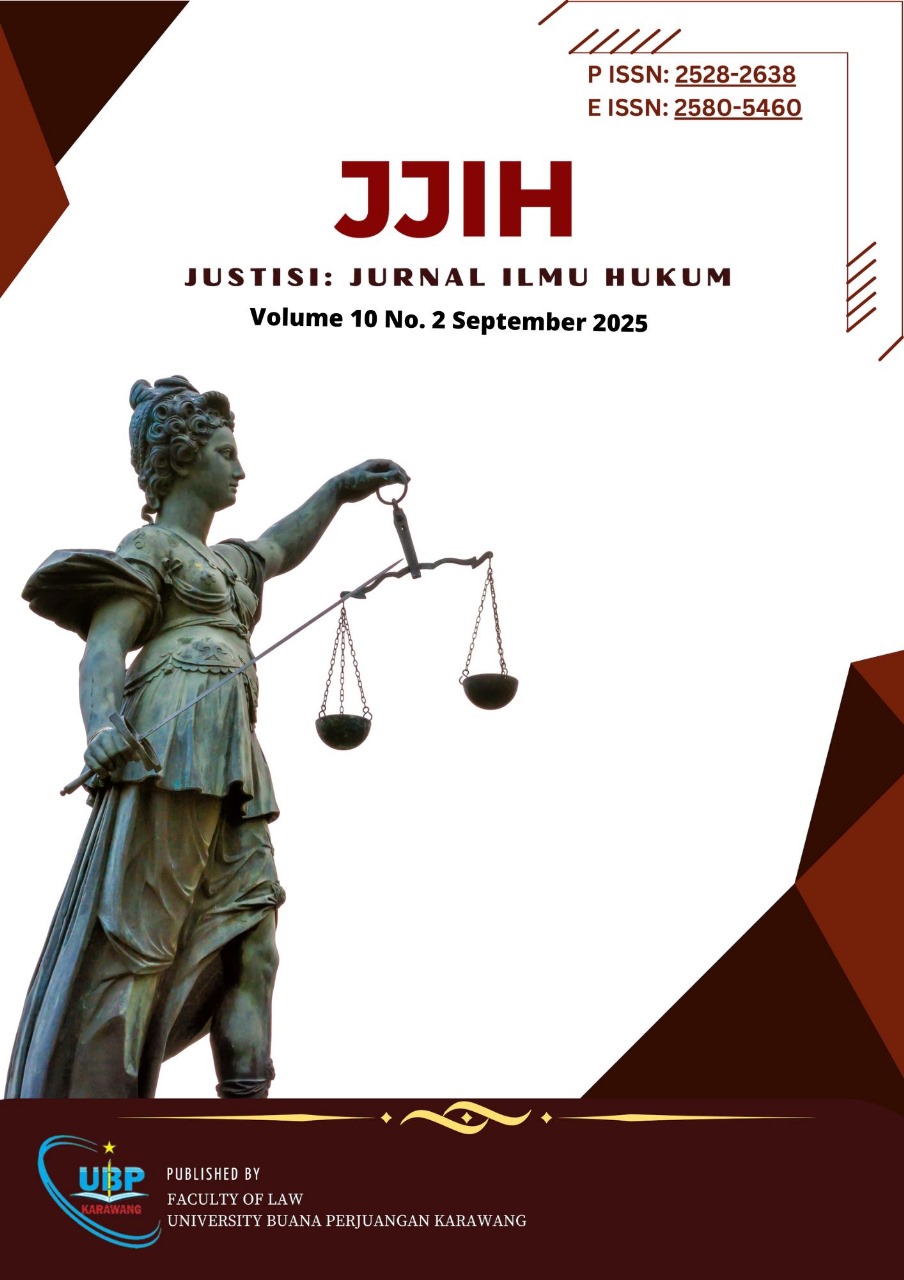THE IMPLEMENTATION OF GOOD GOVERMENT GOVERNANCE IN THE IMPLEMENTATION OF FRANCHISE BUSINESSES IN INDONESIA
DOI:
https://doi.org/10.36805/d5shwp02Keywords:
Good Government Governance, franchise, regulation, transparency.Abstract
This research aims to analyze and examine the application of Good Government Governance (GGG) principles in the implementation of franchise businesses in Indonesia. The implementation of GGG is crucial to create a healthy, transparent, and accountable business climate, especially in the franchise sector that involves many parties, both from the government as a regulator and business actors. The research method used is literature study and qualitative analysis of laws and regulations related to franchising, as well as applicable government policies. The results of the study show that franchise regulations in Indonesia have adopted several GGG principles, such as transparency through registration and information submission obligations, as well as accountability in the form of supervision and law enforcement. However, its implementation still faces several obstacles, including weak inter-institutional coordination, lack of socialization to business actors, and overlapping regulations. Synergy between the central and regional governments, as well as the active role of franchise associations is needed to increase the effectiveness of supervision and law enforcement. The conclusion of this study is that the implementation of GGG in the franchise business in Indonesia is still not optimal and requires systematic improvement. The recommendations included simplifying regulations, increasing supervisory capacity, and strengthening partnerships between the government and the private sector. Thus, it is hoped that a conducive franchise ecosystem can be created, protect the rights of all parties, and encourage sustainable economic growth
References
Book:
References (in alphabetical order):
Adisasmita, Rahardjo. 2014. Governance System and Good Governance. Yogyakarta: Graha Ilmu.
Alwi, Hasan. 2015. Introduction to Law. Jakarta: Kencana.
Two. 2012. Franchise Business: A Review from Legal and Regulatory Aspects. Second Print. Jakarta: Sinar Grafika Publishers.
By Joseph Riwu. 2015. The Prospects of Regional Autonomy in the Republic of Indonesia: Identification of Several Factors Affecting the Implementation of Regional Autonomy. Jakarta: RajaGrafindo Persada.
Marzuki, Peter Mahmud. 2011. Legal Research. Jakarta: Kencana Prenada Media Group.
Moleong, Lexy J. 2012. Qualitative Research Methodology. Bandung: PT Remaja Rosdakarya.
Sutedi, Adrian. 2014. Franchise Law. First Print. Jakarta: Sinar Grafika Publishers.
Suparto, B. 2016. Good Governance: Theory and Implementation. Yogyakarta: Student Library.
Susanto, A.F. 2018. The Indonesian Legal System: Dynamics, Changes, and Problematics. Jakarta: Gramedia Pustaka Utama.
Widjaja, Gunawan. 2017. The Law of Franchises: A Comprehensive Study. Jakarta: Kencana.
Journal Article:
References (in alphabetical order):
Haryanto, T., & Purwanto, B. (2019). "Harmonization of Laws and Regulations Related to Franchises in Indonesia: A Case Study of Licensing Bureaucracy." Journal of Public Policy, Vol. 10, No. 1, pp. 1–15.
Setyawan, A., & Wibowo, S. (2020). "Juridical Review of Legal Protection Against Franchisors and Franchisees in Franchise Agreements." Journal of Law and Development, Vol. 50, No. 3, pp. 687–701
Sjafrizal. (2013). "Good Governance as a Strategy to Improve Local Government Performance." Journal of Development Economics: A Study of Economic and Development Problems, Vol. 14, No. 2, pp. 165–174.

Downloads
Published
Issue
Section
License
Copyright (c) 2025 Adi Silalahi, Dheya Rahmawati

This work is licensed under a Creative Commons Attribution 4.0 International License.
Deposit & Pengarsipan Mandiri
Naskah artikel versi pra-cetak (draf awal), versi diterima (draf akhir), dan versi penerbit (PDF terbitan) boleh diarsipkan mandiri di situs web pribadi atau repositori institusional milik penulis dengan tetap mencantumkan status progres dan sumber asli yang merujuk pada website jurnal ini.
Preservasi & Pengarsipan Sistem
Jurnal ini tergabung dalam jaringan PKP Preservation Network, yang menyediakan layanan preservasi dan pengarsipan secara otomatis apabila terjadi sesuatu yang menyebabkan jurnal ini tidak terbit lagi (trigger event).



